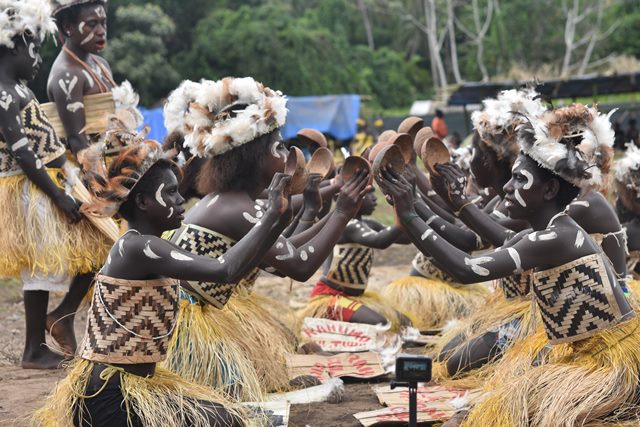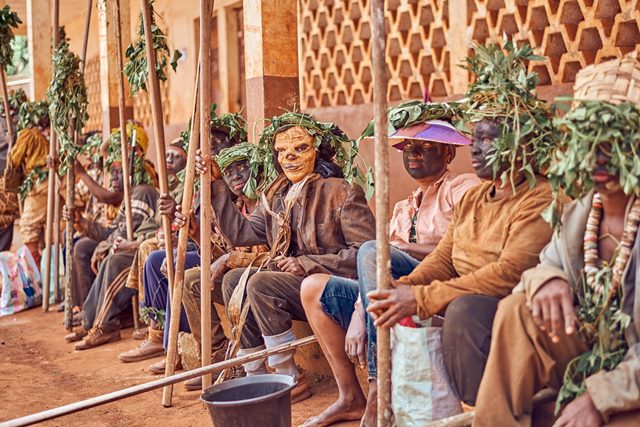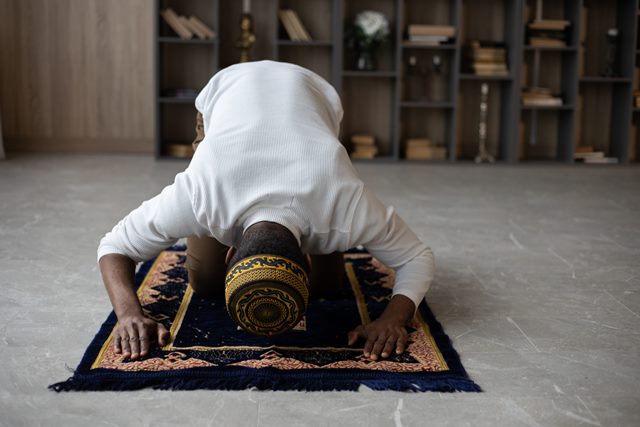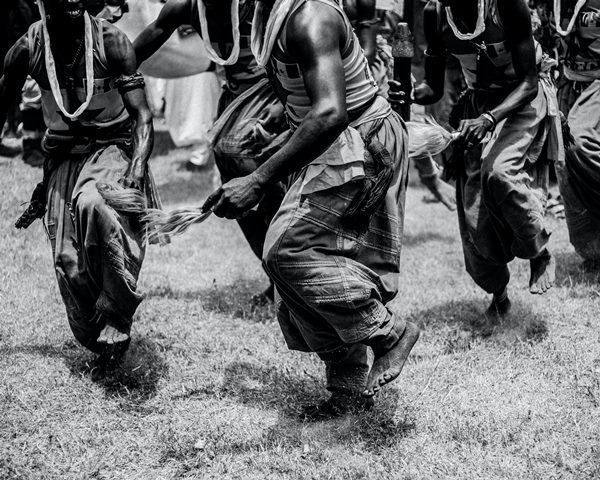Last Updated on May 6, 2023
Religion began thousands of years ago, and while they all differ, African religious practices are somewhat peculiar. Tradition, spirituality, and faith all converge to create an interesting body of convictions.
Africa has been influenced by various religious beliefs over the centuries, ranging from prehistoric tribal practices to the spread of Christianity and Islam.
These conducts have long impacted the continent’s cultural landscape, including politics, social norms, art, and music. A journey of discovery awaits you as we delve into the fascinating past of African religious practices and examine how they have changed and developed over time.
Let’s learn about the continent’s rich spiritual heritage and how it has shaped its distinctive identity.
Some of these traditions are surprising, funny, or hilarious – you take your pick.

Traditional African Religious Practices
African traditional religious practices are a rich tapestry of rituals and beliefs that have developed over thousands of years. These customs have their origins in animistic beliefs, which acknowledge the existence of ghosts and ancestors in the natural world.
The variety of traditional African religions reflects the cultural and linguistic diversity of the continent.
Rituals and Ceremonies
Extensive rituals and ceremonies are a common feature of traditional African religious practices. Through these rituals, it is believed one can communicate with the dead and seek their blessings or guidance.
Sacrifices, offerings, and libations to spirits and ancestors are usually included in rituals. Traditional African religious practices also include singing, dancing, and drumming. These events are believed to unite communities and foster a more elevated spiritual state.
Traditional African Religious Leaders

The role of authorities in religion cannot be ignored, but it’s even more pronounced in African religions.
Religious authorities significantly influence the direction of the community’s spiritual practices in traditional African societies.
These leaders may be priests, healers, or diviners, depending on the particular tradition. They are often regarded as respected community members and thought to have unique spiritual abilities and knowledge.
Challenges to Traditional African Religious Practices
Over the centuries, traditional African religious practices have encountered difficulties. The arrival of Christianity and Islam is one of these difficulties because it led to the marginalization of African beliefs.
Suddenly, traditional beliefs were seen as “backward” and connected to the black powers or the devil. In an attempt to make Africans believe in Christianity and Islam, colonial powers and Arab influence made African religious practices seem dirty, archaic, and evil.
On the other hand, Christian and Islamic beliefs were said to be more “civilized” and “modern.”
Today, many Africans still find it difficult to reconcile the influence of Christianity and Islam with their traditional beliefs.
The Spread of Christianity and Its Effect on African Religion

Christian missionaries worked to spread the gospel and win Africans to their faith, and it was through their efforts that Christianity first reached the continent.
The arrival of Portuguese explorers, who brought Catholicism to West Africa, started in the late 15th century. Over time, other Christian denominations established missions across the continent, such as the Anglicans, Methodists, and Baptists.
The desire to “civilize” and “modernize” African societies were among the factors that fueled the spread of Christianity on the African continent.
Many European colonizers believed that spreading Christianity would “civilize” the continent’s people, who they viewed as “primitive” and “backward.” Due to this, Christian hospitals, schools, and other organizations were founded, providing Africans with services such as education and healthcare.
As they say, he who pays the piper dictates the tune. Colonial masters offered better healthcare and education that promised their kids would become like the White man, so turning away from traditional beliefs seemed to be a good deal for many locals.
The Fight Against Colonialism
Christianity also played a significant part in the fight against colonialism and apartheid in Africa. Prominent Christian leaders in the anti-colonial and anti-apartheid movements included Albert Luthuli in Nigeria and Desmond Tutu in South Africa.
They made it possible for Africans to gather and mobilize in the church to fight their oppressors.
With more than 500 million Christians on the continent, Christianity is currently the most widely practiced religion in Africa. Its profound influence on African societies has affected everything from politics and social norms to art and music.
African theology and worship practices are just two examples of the significant contributions made by African Christians to the world’s Christian community.
Despite its widespread acceptance, Christianity in Africa faces difficulties. Many African Christians find it difficult to balance their religious beliefs with cultural practices.
Others berate the church for aiding colonialism and oppression in Africa. But many Africans still find solace, inspiration, and hope in Christianity, which gives them a sense of belonging and identity in a constantly shifting environment.
The Influence of Islam on African Religious Practices

Islam began to spread throughout Africa in the 7th century when Arab traders arrived on the continent. The occupants of the coastal areas of East Africa were gradually converted to Islam due to the traders’ introduction of the religion.
Islamic empires like the Fatimids and Abbasids introduced Islam to North Africa over time.
Thanks to trade and conquest, Africa became the center of Islam’s expansion. In addition, Arab traders used their financial power to establish trading outposts along the coast that eventually developed into hubs of Islamic learning and scholarship.
Read: How Timbuktu Thrived During Islam’s Golden Age
These institutions attracted African academics and students who later studied Islam and became Muslims.
Additionally, conquest contributed to the growth of Islam in Africa. Muslim armies conquered a sizable portion of North Africa and the Horn of Africa, establishing Islamic empires there.
These empires, including the Almoravids and the Sokoto Caliphate, often used force to introduce Islam to the peoples they subdued.
Today, with more than 400 million Muslims on the continent, Islam ranks as the second-largest religion in Africa. It has significantly influenced African societies, affecting everything from law and politics to art and architecture.
Moreover, African cultures and societies have significantly benefited from the scholarship and learning of the Islamic tradition.
The spread of Islam in Africa hasn’t been without problems, though. There are some places where traditional African religions and Islamic beliefs and practices clash, causing hostilities.
In some regions of Africa, there have also been conflicts between Muslims and non-Muslims and between various certain terrorist groups who claim to be Islamic.
Syncretism and Hybridization
Two terms that describe the blending of various cultural and religious traditions are syncretism and hybridization.
Syncretism is blending various religious practices and beliefs into a brand-new, hybrid form. On the other hand, hybridization describes combining various cultural traditions and practices to produce something fresh.
Throughout history, syncretism and hybridization have been frequent as various cultures and religions have connected. These processes can take place in a variety of options, from the idea exchange between societies that are close by to the forced cultural assimilation that frequently occurs alongside colonialism.
The religious customs of Afro-Caribbean communities, such as those in Haiti and Cuba, are one example of syncretism. These communities amalgamate elements of traditional African religion with Christian doctrine to create a unique brand of spirituality that combines African and European influences.
The cuisine of various cultures exhibits similar hybridization.
For instance, Mexican cuisine combines traditional Aztec and Mayan foods with Spanish ingredients and cooking methods. This has led to a distinctive culinary tradition that reflects both colonial and indigenous influences.
In addition to producing diverse and rich cultural expressions, syncretism and hybridization can lead to tension and conflict.
Syncretism and hybridization may be viewed as betraying one’s heritage by traditionalists. Many indigenous people see these processes as a threat to one’s cultural and religious identities by those who embrace them.
Ultimately, hybridization and syncretism are significant phenomena that highlight the ever-evolving nature of human culture and religion. They show how various traditions can interact and impact one another to produce fresh and original forms of expression.
Impact of African Religious Practices

Through their role in forming social and political systems, African religious practices have had a significant impact on society. Many traditional African religions, including those followed by the Yoruba and the Igbo, are based on the veneration of ancestors and spirits.
These ideas frequently serve to justify political power and have contributed to emphasizing the significance of kinship and community ties.
African religious practices have greatly influenced the arts and culture of the continent. Religious themes and motifs are frequently incorporated into traditional music, dance, and visual arts, which are used to express social and spiritual values.
For instance, the elaborate mask customs of West and Central Africa frequently convey messages about social status, power, and identity.
African religious traditions have also been used to fight colonialism and other forms of oppression. During European colonialism, traditional African religions were frequently targeted for eradication or suppression.
However, many Africans discovered ways to modify their spirituality to fit the new environment better and resist colonial rule.
Today, millions of people on the continent and worldwide continue to be influenced by African religious practices.
Christianity and Islam have evolved in new ways that reflect Africa’s distinctive cultural and social contexts, while traditional religions have declined in many regions of the continent.
These faiths remain essential sources of spiritual guidance and inspiration for many Africans today. They have had a significant impact on the history and identity of Africa.
Before you go…
Hey, thank you for reading this blog to the end. I hope it was helpful. Let me tell you a little bit about Nicholas Idoko Technologies. We help businesses and companies build an online presence by developing web, mobile, desktop, and blockchain applications.
We also help aspiring software developers and programmers learn the skills they need to have a successful career. Take your first step to becoming a programming boss by joining our Learn To Code academy today!











